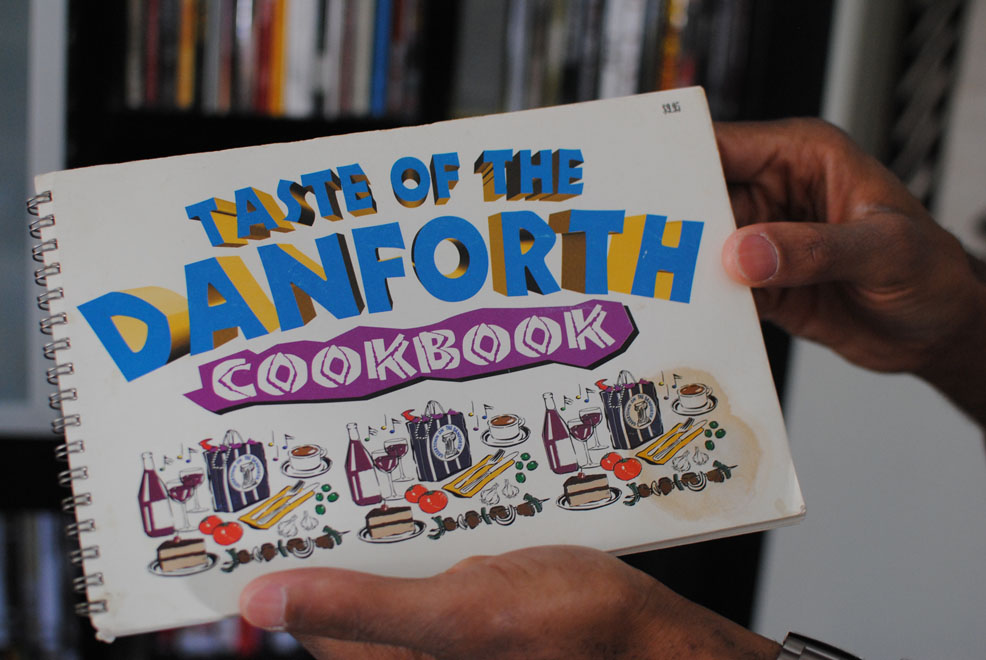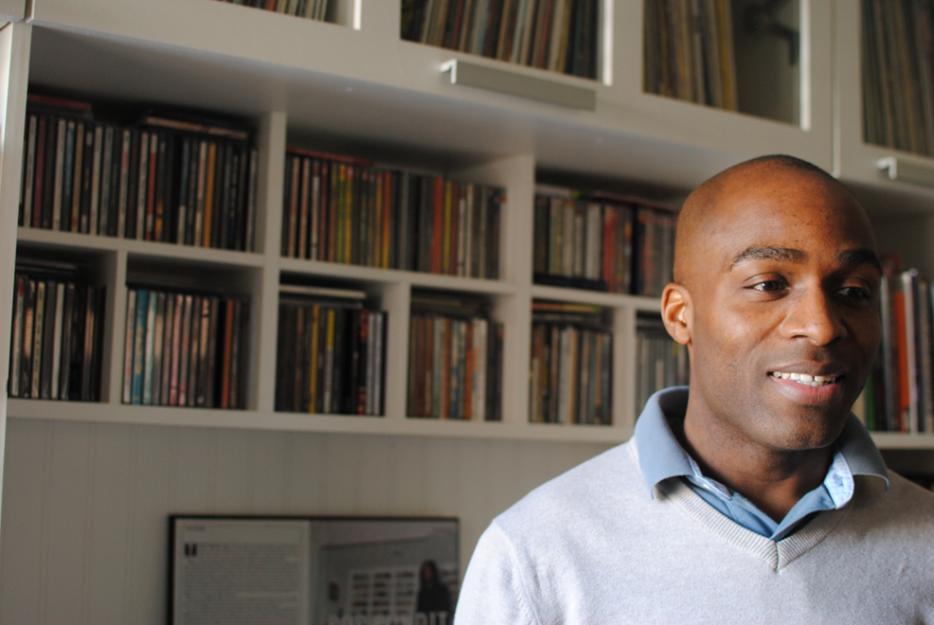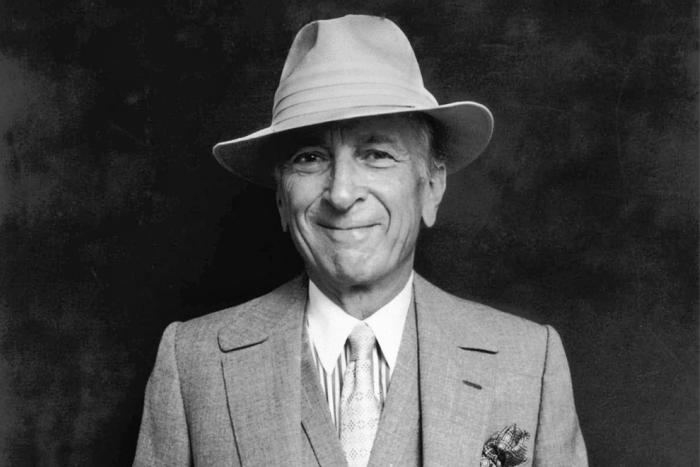Shelf Esteem is a weekly measure of the books on the shelves of writers, editors, and other word lovers, as told to Emily M. Keeler. This week’s shelf belongs to Dalton Higgins, the author of five books, most recently Far From Over: The Music and Life of Drake. Higgins is also a critic and broadcaster, as well as a music programmer and publishing professional. A man of many interests, his bookshelves are stuffed full of books, DVDs, magazines, LPs, CDs, and photos, and are spread out over several rooms in his west Toronto home, which he shares with his wife and their two children.
So this is the only section that I think is kind of curated, and it’s because these are the books I wrote. To be honest—yeah that’s it! Everything else is just really random. It’s like, okay, remember Dalton, you wrote that book. So you have to kind of put them together. And so these are the books I wrote, Far from Over, about Drake, that’s the new one, it came out a couple months ago. Fatherhood 4.0, that’s about the new generation of—I call myself a hip hop pop. It’s about a newer generation of fathers that are equally attuned to hip hop culture, as equally attuned as their children. So like with my daughter, it’s Janelle Monáe or Nikki Minaj, they’re alongside me, whereas my parents had no idea. They were just like, Turn off that noise! What is that?! So yeah, this is the only part of the book collection in our house that’s really curated, so I can remember what I wrote.

This is about all of the aboriginal hockey players. It’s a really good one, They Call me Chief. This basically recounts every First Nations pro hockey player that ever played, and some of the adversity, their struggles, to get to into the NHL, stuff like that. Sports I love, I’m a sports junky, yeah? So I have a bunch—I can read forever about sports. I just read this book about a football player, Stone Thrower. He basically learned—he threw a football with such pinpoint precision because growing up poor in the US, he would basically throw rocks at trains. You know, if you lived close to like, train tracks? He would just try to hit the train as it rode by, like how some kids skip rocks. That’s how he became a quarter back. Stone throwing! He got so good at it, and he’s like Boom! So yeah, that’s his story.
And here’s a great one about Arab rappers, The Diatribes of a Dying Tribe. So it’s about the Arab rap scene, you know what I mean? It’s like the United Nations here, you know? No honestly, looking around my household, it’s the United Nations. I got to be honest, that’s what it is. I take a lot of inspiration from the different cultures around me. I sample—hip hop culture’s about sampling. So if I hear something interesting, a violin, a cello, some interesting electronics—I’ma sample that. So I think I’m like a walking talking sample machine—it’s like patchwork, a quilt, yeah? I write like patchwork. I just take ideas and interweave all these things into my own identity.






